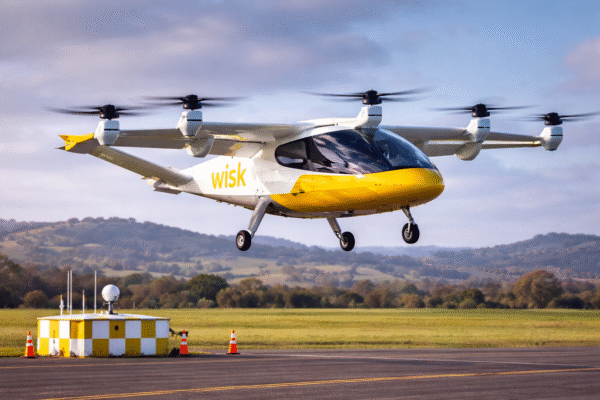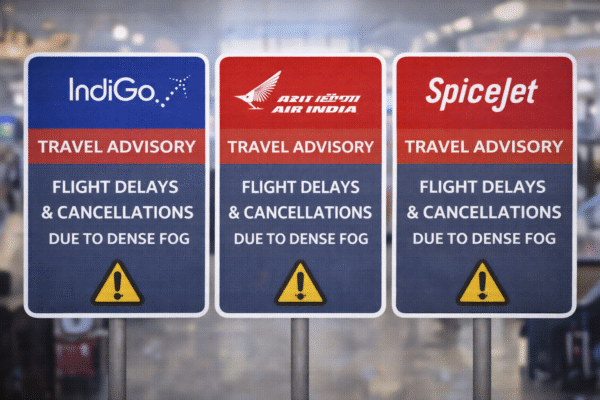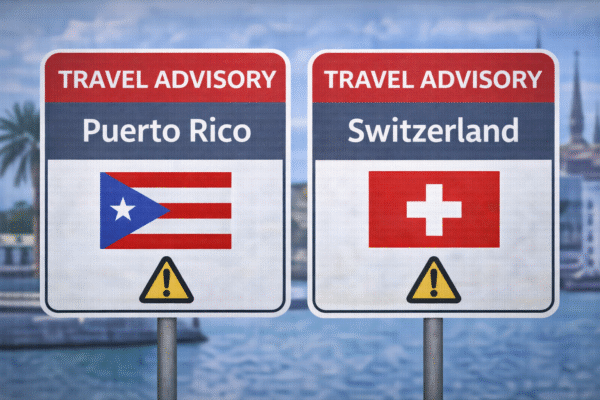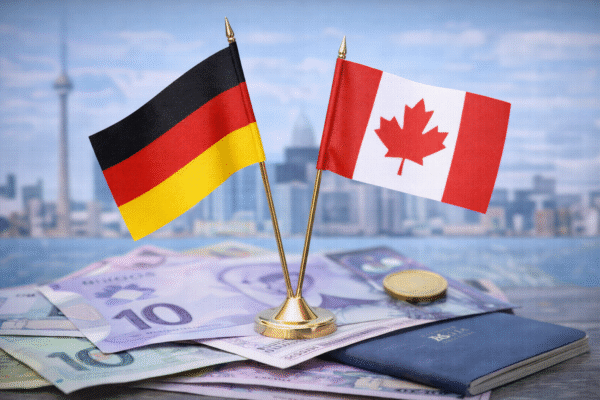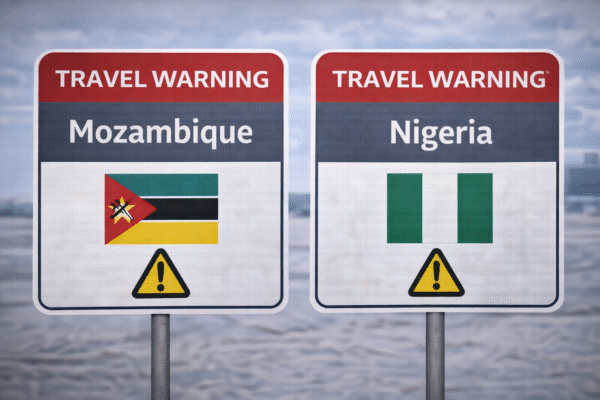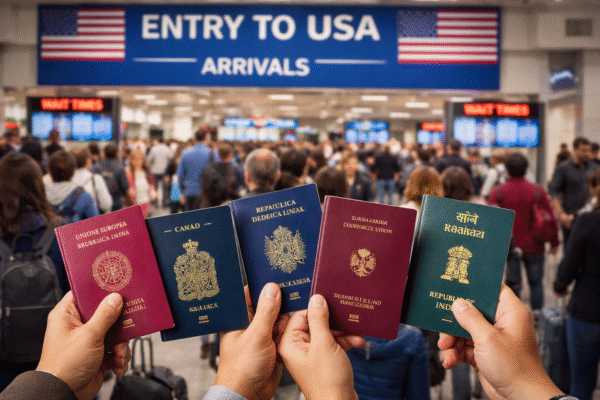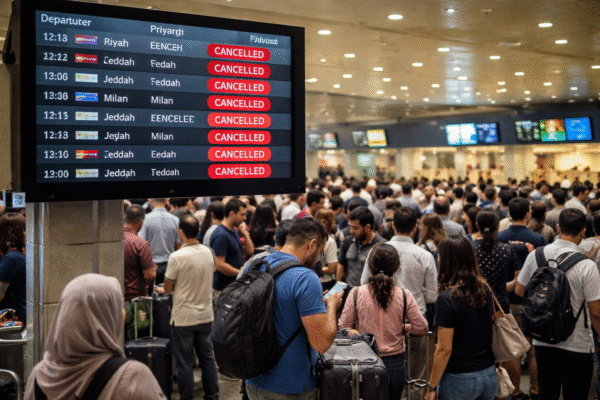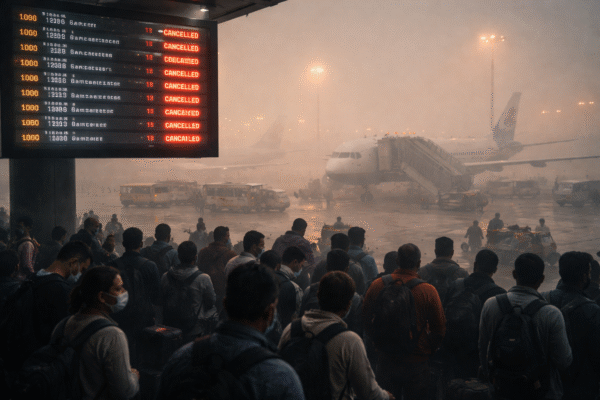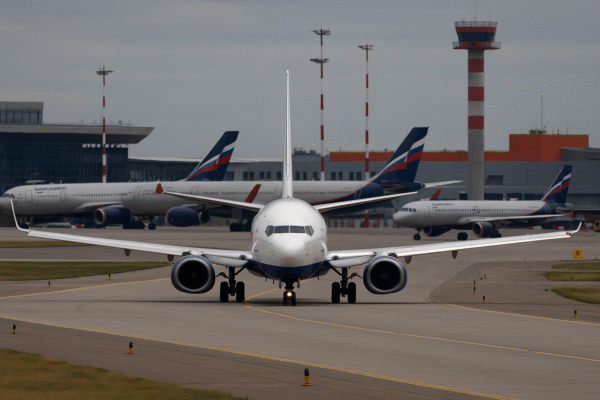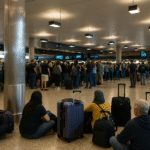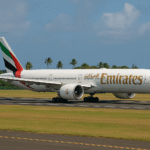An intense wave of Ukrainian drone strikes over the weekend forced a temporary shutdown of four major airports in Moscow, resulting in over 140 cancelled flights and significant travel delays. The latest attack, part of a growing pattern of Ukrainian unmanned aerial vehicle (UAV) incursions, has exposed the vulnerability of Russian airspace and aviation infrastructure.
Four Major Airports Targeted in Coordinated Drone Offensive
The overnight attack from Saturday into Sunday impacted Sheremetyevo International Airport (SVO), Vnukovo International Airport (VKO), Domodedovo Airport (DME), and Zhukovsky Airport (ZIA). Russian air defense systems reportedly intercepted 27 drones over Moscow and over 230 across the wider Russian Federation. Despite successful interceptions, the sheer volume of drones overwhelmed the system, triggering emergency shutdown protocols.
According to the Russian Ministry of Defense, the drone assault was one of the most sustained attacks in recent months. Vnukovo Airport, located southwest of Moscow, suffered the greatest operational setback and remained closed for extended periods on Sunday due to continued aerial threats. Kaluga’s Grabtsevo Airport also temporarily closed its airspace as a precautionary measure.
Over 140 Flights Cancelled, 130 Diverted Amid Travel Chaos
Russia’s Federal Air Transport Agency (Rosaviatsiya) confirmed that over 140 flights were cancelled across the four affected airports. Another 130 flights were diverted to other domestic airports to avoid the disrupted airspace. Passengers reported long delays, missed connections, and a lack of real-time information as aviation authorities scrambled to manage the crisis.
By late Sunday, Sheremetyevo, Domodedovo, and Zhukovsky had resumed partial operations, though with limited capacity. Vnukovo, however, remained under heightened security alerts due to ongoing drone reconnaissance and potential secondary strikes.
Travelers were urged to monitor airline announcements and airport updates closely. Moscow’s Department of Transport issued an advisory stating that residual delays and gate changes could continue for days as airlines cleared flight backlogs and rescheduled departures.
Kremlin’s Response: Security and Diplomacy
President Vladimir Putin, through Kremlin spokesperson Dmitry Peskov, reaffirmed Russia’s desire for a diplomatic resolution to the ongoing conflict while emphasizing the country’s strategic defense priorities. “The peace process must proceed through bilateral cooperation,” the statement read, adding that Russia will continue to defend its sovereignty.
Putin’s comments echoed earlier declarations at the St. Petersburg International Economic Forum, where he acknowledged the growing complexity of hybrid warfare and the integration of civilian targets into modern combat zones.
Global Implications: Civilian Infrastructure Under Fire
This incident is part of a broader trend in which civilian infrastructure, including air travel, is increasingly entangled in military operations. The disruption to airspace over a major global capital has reignited concerns among international aviation regulators, including the International Civil Aviation Organization (ICAO), about UAV risks and airspace security protocols.
The U.S. Federal Aviation Administration (FAA) and the European Union Aviation Safety Agency (EASA) have previously issued advisories for airlines operating over conflict zones. With drone strikes now affecting even high-security airports in major cities like Moscow, the global aviation community is reassessing drone defense measures.
Future of Air Travel in Russia: Heightened Surveillance and Delays
While Moscow’s airports are now operational, the long-term effects on travel confidence, insurance premiums, and airline scheduling are likely to linger. Russian officials are considering the deployment of new radar detection systems, electronic warfare tools, and no-fly buffer zones around major transportation hubs.
Aviation experts in Russia warn that unless advanced counter-drone measures are adopted quickly, more incidents could follow, potentially affecting Russia’s busy domestic flight network, which handled over 110 million passengers in 2024, according to Rosaviatsiya.
Passengers traveling through Moscow in the coming weeks are advised to check with carriers for schedule changes and anticipate tighter security screenings.
A New Chapter in Hybrid Warfare
The drone strike on Moscow’s airports serves as a stark reminder that the war between Russia and Ukraine is evolving into a high-tech battle that reaches far beyond traditional frontlines. Airports, power grids, and even communication networks are now considered fair game in the strategic playbook.
The global aviation sector is taking note. With drone technology becoming more accessible and the effectiveness of large-scale UAV attacks demonstrated, national aviation authorities worldwide may soon be required to adopt stricter drone interdiction frameworks.
Conclusion
As Russia’s capital slowly restores its aviation operations, the aftermath of this unprecedented drone strike continues to ripple through the industry. With over 140 flights cancelled and major airports brought to a standstill, the attack has cast a spotlight on airspace vulnerabilities in times of conflict.
While passengers are taking to the skies once again, Moscow’s air travel landscape has changed — and with it, global perceptions of airport security in the drone age.
For more travel news like this, keep reading Global Travel Wire



